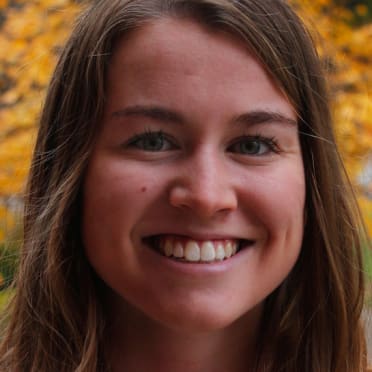When Royals outfielder Nick Heath emerged as a voice in the clubhouse after George Floyd’s death on May 25, he emphasized that he didn’t want the conversations about racial inequality he had with teammates, front-office members and media to stop there. He wanted the dialogue to continue and to run into action within the Royals and the Kansas City community.
Those conversations continued Wednesday, when Heath was part of a Royals roundtable on Black History Month.
Heath joined Bob Kendrick, the Negro Leagues Baseball Museum director; Reggie Sanders, the Royals’ special assistant to baseball operations, who spent 17 years in the Majors; Darwin Pennye, the executive director of the Kansas City Urban Youth Academy; and Karen Daniel, who is part of the Royals' ownership group. It was moderated by Royals broadcaster Ryan Lefebvre and began with a question on what Black History Month means to each of the panelists.
“Black History Month is big for people that are my age, because it’s the opportunity for us to learn something,” Heath said. “We should be learning things year-round, and the Black experience doesn’t change -- it’s 365 days a year. But I think it’s the opportunity for people who aren’t as informed as they could be, it’s the opportunity to put it in your face. This is huge for us, and I think as that continues to grow and people start to get a better grasp of it, it doesn’t become a month. I think it becomes something that people are more mindful of every day.”
Daniel agreed: “Black History Month highlights our heroes and heroines. And it creates a recommitment in my mind -- daily, weekly -- around the idea that we have to tell our history. And in light of what happened this summer, it’s an opportunity to double down, recommit to this idea that we can forge our own way forward and overcome the barriers.
“I’m thinking more about equity these days, which is the next level, which says let’s remove the barriers that keep Black people [and] other underrepresented and underserved communities, from moving forward. Hopefully it’s a year-round activity, though I do take great pleasure in the February timeframe to hear those stories be told on a national level.”
For Pennye and Sanders, February is a month for celebration and reflection.
“When I look at Black History Month, the word that immediately comes to mind for me is celebration,” Pennye said. “It is a celebration of the African American experience. Celebrations for me are always a time of reflection and to look back and to see how [we got] to this point. And if you don’t look at Black History Month, you will start to lose how far we’ve come. We certainly still have a long way to go. But how do we continue to progress if we don’t know from where we came?”
When Lefebvre asked Heath how he uses his platform as a Major League Baseball player, the 27-year-old outfielder turned the question around to the others, asking for advice on exactly how to use that platform with the resources he has. Sanders brought up last summer, when about a dozen of the organization’s Black players spent two hours talking about their experiences, feelings and ideas with front office officials.
“Nick was at the forefront of it,” Sanders said. “So I just have to say, Nick, you are doing everything that you need to do, my friend. There’s obviously a lot of work that still needs to be done, but at the forefront of everything is equity. It’s about the equity piece now. So as we all dive in and try to make sure that we continue to voice all the situations and our frustrations, it’s important to hold our hierarchy to a higher standard to make sure that we are implementing our Black or minority people in higher positions.”
And Heath is more than ready to help those who come after him.
“It’s different for me, because I didn’t have a ton coming up, and now I’m in a position to give back to people who might not have that either,” Heath said. “So Mr. Kendrick, I want to say, as often as I can, I want to be at the Negro Leagues Baseball Museum. Mr. Pennye, as often as I can, I want to be at the Urban Youth Academy. And I just want to give back, man.
“I just want to give people a chance to go out there and chase what they love, to give people a chance to chase their education, because nobody can take that from you. And I want to see Black boys and Black girls across America doing everything they ever thought they possibly could without somebody telling them, or without them feeling like somebody is going to hold them back.”
The roundtable ended by spinning the conversation forward to what comes next. Heath mentioned bringing people together when COVID-19 restrictions are lifted and having conversations like theirs on Wednesday -- but in an open setting, with food, people and more learning opportunities.
“I think it’s a great idea,” Daniel said. “Because one of the things that we as a nation must do is continue having these more difficult conversations to understand where we are, why we are there and how we get to a better place.”
Heath’s idea even has a venue already.
“That’s the best thing you can do, Nick,” Pennye said. “When we sit at the table, we’re all even. There’s something about people that when you put a little food in their mouth, they tend to relax. Nick, if I can offer up a place, I’ve got a big infield here that we can certainly be willing to have people break bread.”
